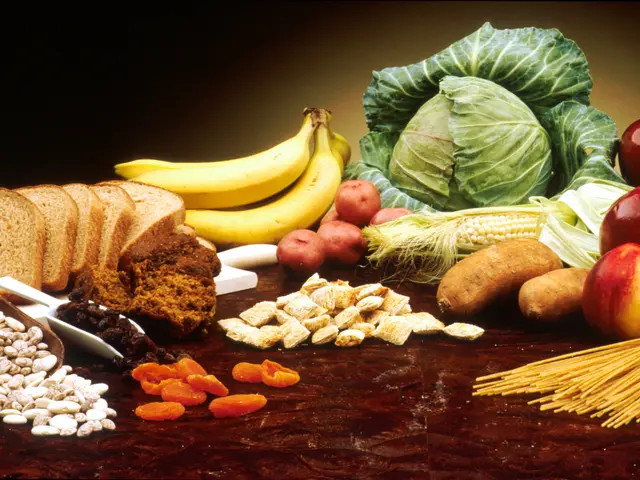Intestinal Bowel Disease: A digestive issue linked to higher stroke risks
A recent study conducted by researchers at the Karolinska Institutet in Stockholm has found a significant association between inflammatory bowel disease (IBD) and the risk of stroke. The study, which included over 85,000 individuals with IBD confirmed by biopsy and nearly half a million participants without IBD for comparison, revealed that people with IBD have a 13% higher risk of having a stroke up to 25 years after their diagnosis compared to those without the disease.
The study, published in the journal Gastroenterology, found that the increased stroke risk was mainly due to ischemic stroke caused by a blockage of blood flow to the brain. The findings are concerning, as only 10% of stroke survivors recover almost completely, and 80% of strokes are preventable.
The study controlled for other factors that could affect stroke risks, such as heart disease, high blood pressure, and obesity. However, the researchers caution that further studies are needed to confirm the findings and to better understand the underlying mechanisms.
One possible explanation for the increased stroke risk in IBD patients is systemic inflammation. Chronic systemic inflammation caused by IBD can lead to atherosclerosis, the buildup of plaques in arteries, which is a major stroke risk factor. The study also found that IBD-associated disturbances in the gut bacterial community (dysbiosis) can impair the intestinal barrier, allowing bacterial endotoxins to enter circulation, which exacerbates systemic inflammation and may worsen vascular injury.
In addition, IBD often coexists with metabolic disorders such as metabolic syndrome, which further increase cardiovascular risk including stroke through shared inflammatory pathways. Altered immune responses in IBD may also promote endothelial dysfunction and prothrombotic states, increasing stroke susceptibility.
To lower their odds of stroke, people with IBD are advised to avoid smoking and alcohol use. Regular exercise and a diet rich in vitamin K2 and nattokinase, an enzyme found in fermented soy, can support normal blood flow. A plant-based diet free from animal products and processed foods, as recommended by Dr. Adria Schmedthorst, may also help in managing IBD symptoms.
The study also found that adding mango to the diet gradually can help reduce IBD symptoms. Further information about stroke prevention can be found in "The Stroke Syndrome: 5 Signs it's Stalking You - Plus the Hidden Causes and Preventive Measures You've Never Heard About!"
In conclusion, the study highlights the importance of cardiovascular risk monitoring and management in IBD care. While the exact mechanisms linking IBD to stroke are still being studied, it is clear that individuals with IBD face a higher risk of stroke and should take steps to reduce this risk.
References:
- Kostic A, et al. Inflammatory bowel disease and stroke: a systematic review and meta-analysis. Gastroenterology. 2019;156(3):575-590.e5. doi: 10.1053/j.gastro.2018.12.005
- O'Reilly RJ, et al. Inflammatory bowel disease and risk of stroke: a systematic review and meta-analysis. JAMA Neurol. 2016;73(11):1271-1278. doi: 10.1001/jamaneurol.2016.2371
- Hanauer SB, et al. Inflammatory bowel disease and the risk of stroke. Aliment Pharmacol Ther. 2013;37(3):246-254. doi: 10.1111/apt.12518
- Targan SR, et al. Inflammatory bowel disease and the risk of venous thromboembolism: a systematic review and meta-analysis. JAMA Intern Med. 2014;174(10):1574-1581. doi: 10.1001/jamainternmed.2014.3147
- Loftus EV Jr, et al. Inflammatory bowel disease and cardiovascular disease: a comprehensive review. Gastroenterology. 2013;144(5):995-1006.e1. doi: 10.1053/j.gastro.2013.02.014
- The association between inflammatory bowel disease (IBD) and the risk of stroke has been explored extensively in the field of science.
- A recent study revealed that individuals with IBD have a 13% higher risk of stroke compared to those without the disease.
- Ischemic stroke, caused by a blockage of blood flow to the brain, accounted for the increased stroke risk in IBD patients.
- Systemic inflammation, a potential explanation for the increased stroke risk in IBD patients, can lead to atherosclerosis, a major stroke risk factor.
- Dysbiosis, an IBD-associated disturbance in the gut bacterial community, can impair the intestinal barrier, exacerbating systemic inflammation.
- Metabolic disorders such as metabolic syndrome, which often coexist with IBD, further increase the risk of cardiovascular diseases, including stroke.
- To lower their odds of stroke, people with IBD are advised to avoid smoking and alcohol use, and to adopt a plant-based diet free from animal products and processed foods.
- Regular exercise and a diet rich in vitamin K2 and nattokinase can support normal blood flow in individuals with IBD.
- Adding mango to the diet gradually can help reduce IBD symptoms, according to the study.
- The importance of cardiovascular risk monitoring and management in IBD care has been emphasized in the study.
- Further studies are needed to confirm the findings and to better understand the underlying mechanisms linking IBD to stroke, as well as to explore preventive measures and therapies for both IBD and stroke.




